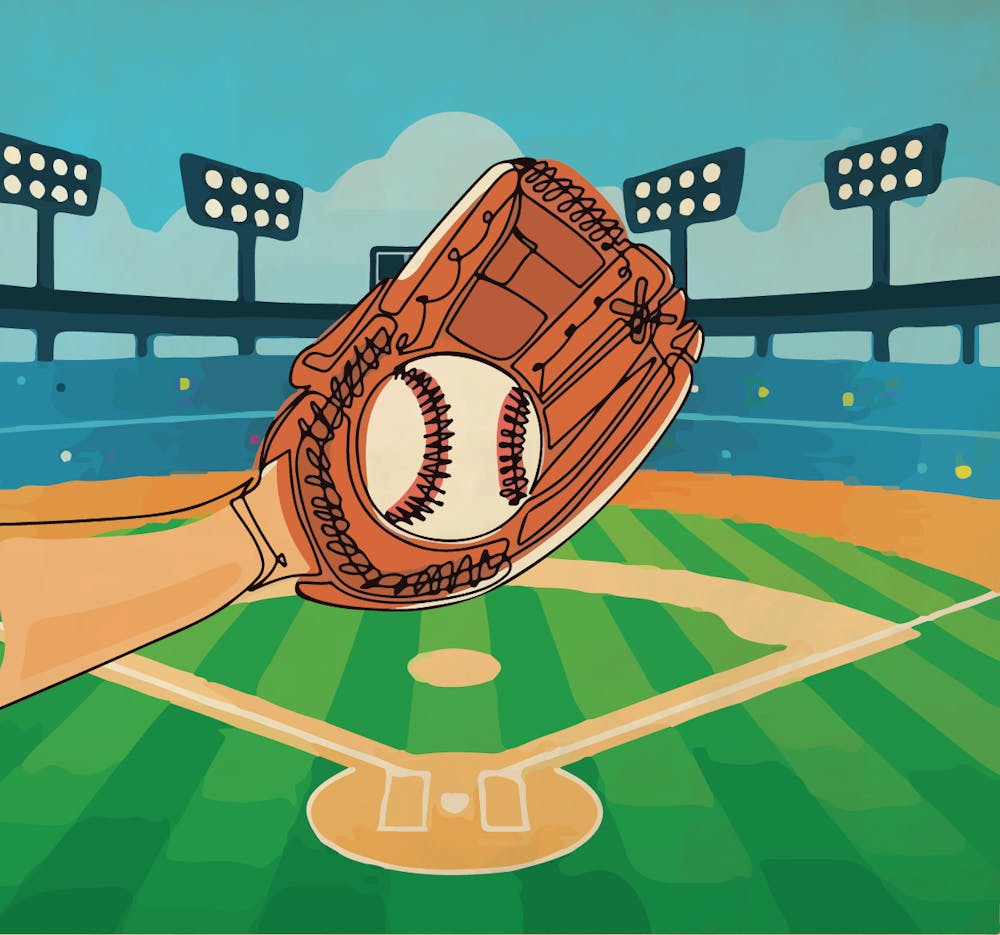I’ll start with a cliché: Baseball is America’s national pastime.
For decades, different films have sought to capture a piece of the massive significance America places on baseball in its culture. Most people who watched movies with their fathers have seen “A League of Their Own” and “The Sandlot.”
“Field of Dreams” is one of those quintessential baseball movies that does more than aim for a slice of the American psyche, the American dream. “Field of Dreams” stars Kevin Costner as Ray Kinsella as he has a mythical experience with a voice he hears out in the cornfields of his Iowa farm.
“If you build it, he will come” has entered our vernacular as a quote that could go toe-to-toe with “May the force be with you.”
Throughout this film, we follow Ray as he indulges in every childlike wonder he encounters along his journey. He builds a baseball field on his farm. He goes on a road trip to Boston, looking for a reclusive author who may be connected to Ray’s late father.
Every moment of this film seeks to show an American man following every kid’s dream. He remembers his baseball experiences with his father as a child. Every step of the way, I found myself remembering my own.
I remember my first walk-off single in the third grade. I remember the catches I played with my dad in our skinny backyard. I remember striking out and making great plays and my first game at Wrigley Field, when the nice man sitting behind me gave me the foul ball he caught.
Baseball is a formative piece of my life, as it is for millions of other Americans.
”Field of Dreams” posits that baseball is not just a game, but something sewn into the American bloodstream, into our souls. It’s timeless and can let you glimpse the future and relive the past.
On the technical side, the film misses most marks. Its script has plenty of goofy, ill-fitting lines. The pacing is about as much of a mess as it can get. The intro is a fairly miserable expositional narration trying to weave in decades of information in the first moments of the film.
Not a lick of that matters by the time you get to the end of the movie.
What matters in this film is the emphasis it puts on the game of baseball as important to our culture. When Ray finally has a catch with his deceased father in the last moments of the movie, it’s impossible to avoid feeling an intense wave of emotion.
Enjoy what you're reading?
Signup for our newsletter
It constantly reminds me of that feeling when I take my seat at a ballpark and remember going as a kid. When Shoeless Joe Jackson appears in the distance on Ray’s homemade field, I think back to my childhood when I had hoped I would one day “go pro” and play for the Chicago Cubs.
Ray Kinsella threw away his savings and his profits to build his field. He gave up on every monotonous requirement in daily life, like his house payments, just to go back to being a kid for a little while with his favorite players on the field.
I sure as hell would do the same if I heard that voice call me.
It’s been 35 years since “Field of Dreams” was first released to American audiences. It doesn’t ring any less important and impactful watching it today, even for my third and fourth times.
Kevin Costner does a great job dropping his jaw in awe and showing sheer joy in his eyes throughout the film. James Earl Jones as Terence Mann, the reclusive author styled after J.D. Salinger, is better than you’d even hope for.
In “Field of Dreams,” I got to, for a brief few moments, feel like I did as a kid. I wanted to pitch to Shoeless Joe Jackson and drive out to Fenway Park looking for Archibald “Moonlight” Graham to give him one chance to swing the bat against a big-league pitcher.
Baseball is a magical sport that often gets reduced to clichés to try and put to words what’s so incredible about it. From your first catch with your dad to little league, to high school teams, baseball grows with you as you age, it’s a story that’s ever progressing — as you are.
“Field of Dreams” is timeless. If it came out today, it would feel just the same as if it were a movie my dad showed me when I was just a little kid.
It doesn’t matter where you’re from, what team you like or how old you are. If you’ve ever had a catch, played in a game or even just watched a baseball game and felt that indescribable pull, this film is a foundational text for American culture, and for you.
“Hey is this Heaven?” Shoeless Joe asks Ray early in the film.
“No. It’s Iowa,” Ray replies.
Baseball is transcendent when simply sitting in the stands. “Field of Dreams” is a field about remembering the simple beauty and pleasure that comes from reconnecting with baseball.
Even if that pleasure comes from something other than baseball for you, you’ll feel the magic tenfold, and be left hoping to find it for yourself, the same way Ray Kinsella did.




